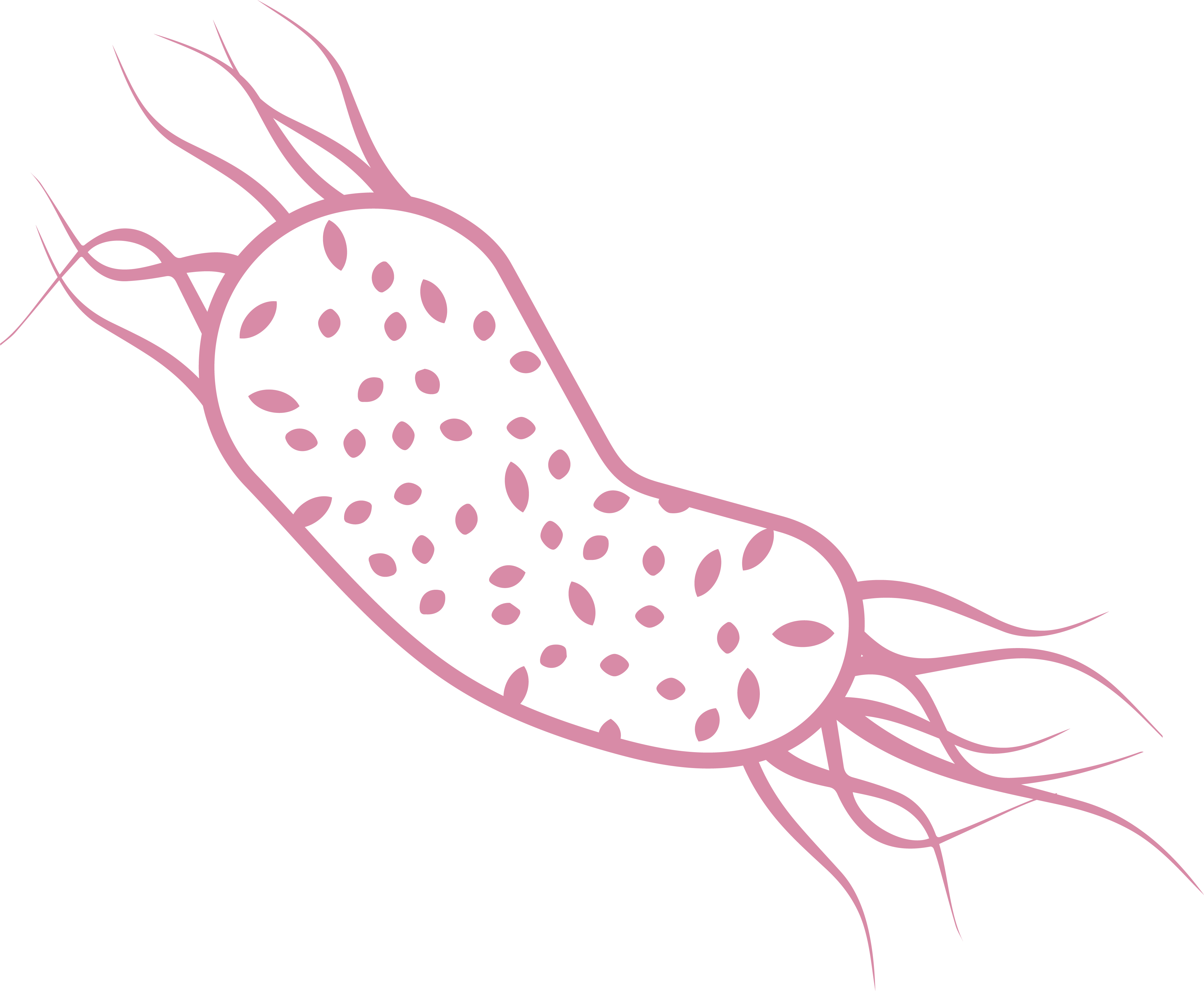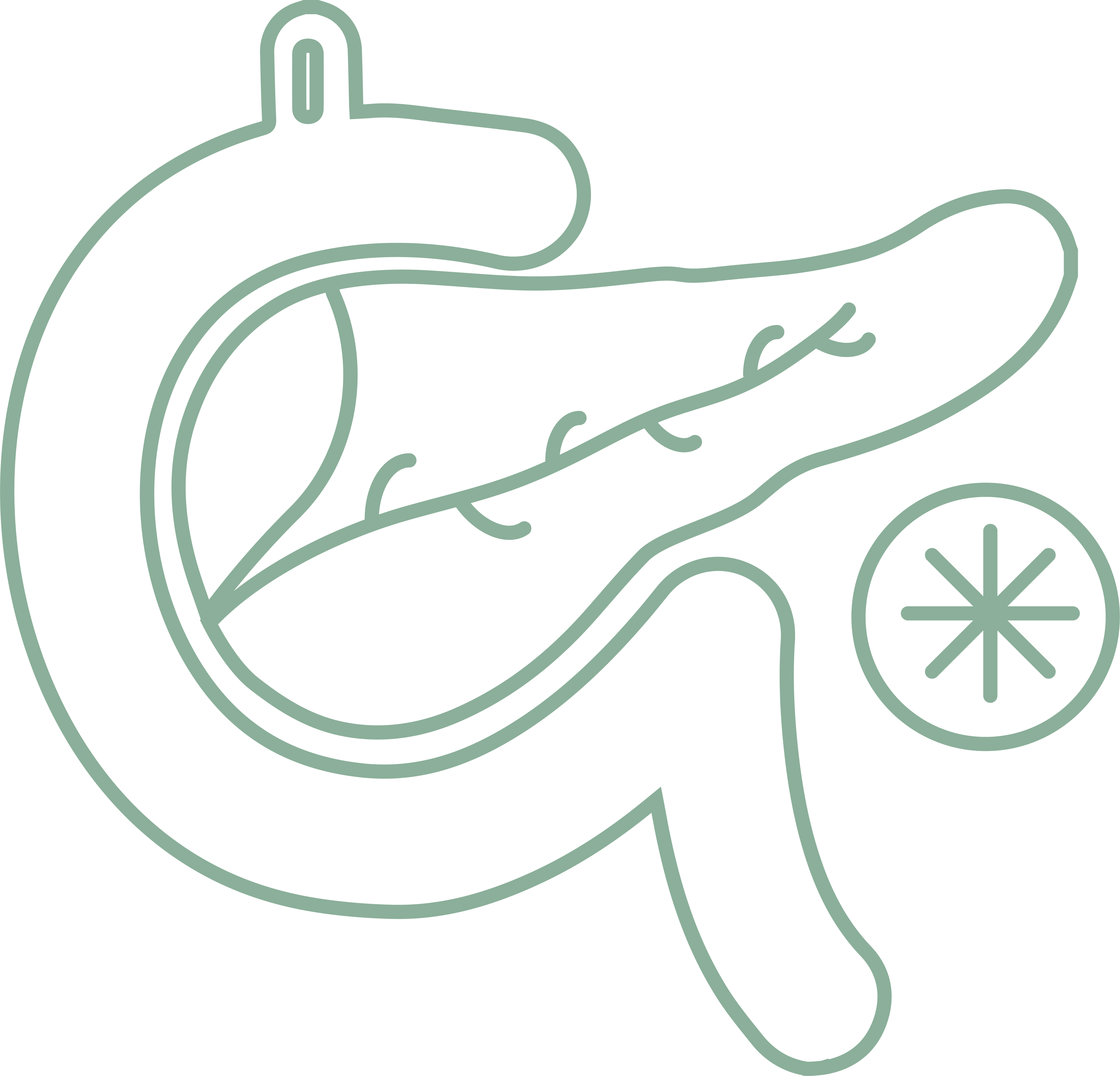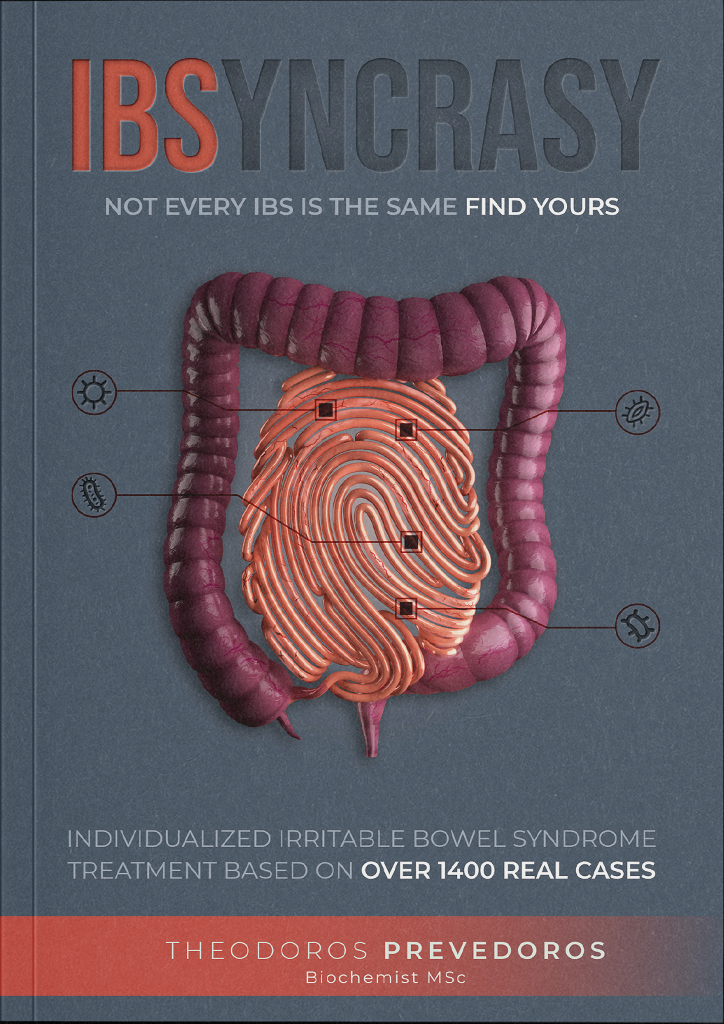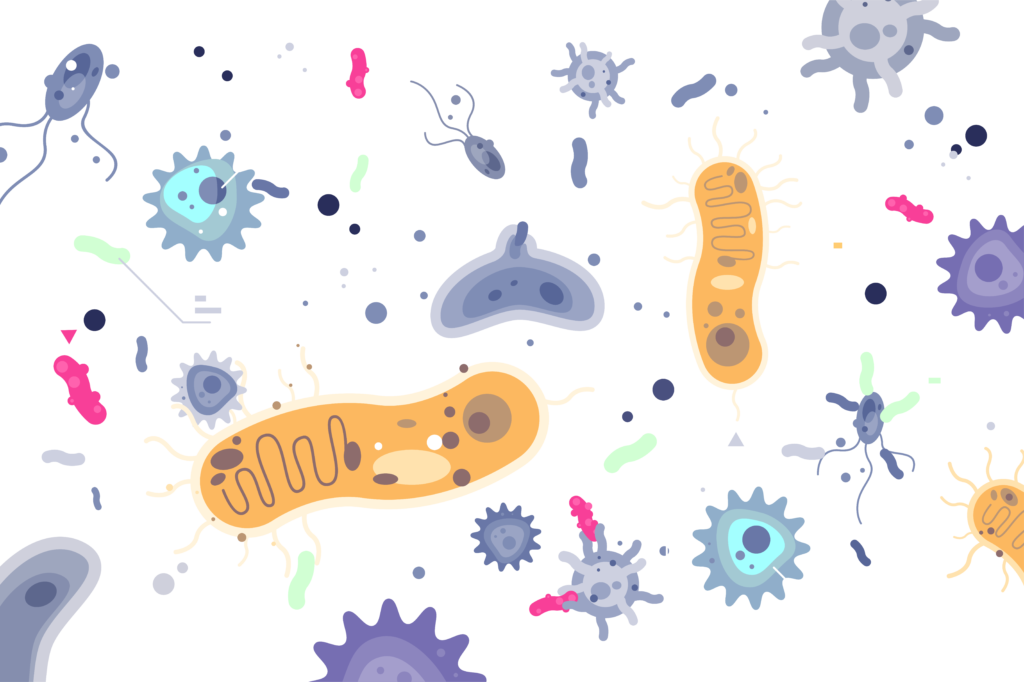One symptom, hundreds of possible causes
Understanding the relationship between a single symptom and the diverse range of biochemical imbalances it may indicate

There are approximately 800 recognized symptoms and signs used for differential diagnosis. These symptoms may occur as a result of approximately 6,000 known diseases, many of which are rare. However, the biochemical abnormalities and their combinations that may cause these diseases are numerous. This is why it is important to treat the underlying biochemistry rather than just the symptoms or the disease.
Let's talk bloating
Bloating is a common symptom of IBS. But the response to the treatment of bloating, in the context of the same diagnosis (IBS) is completely different from patient to patient. And it all comes to the patients’ different biochemistries. Let’s see some examples of bloating in the context of different triggers:
Post-infectious bloating
Induced by dysbiosis, or an imbalance in the types and quantities of bacteria in the gut. This can occur as a result of infections or the use of antibiotics, which can disrupt the normal balance of bacteria in the gut and lead to abnormal fermentation of starch and fiber.
Post-Infectious IBS
READ MORE
Post-cholecystectomy bloating
Induced by fat malabsorption, or difficulty digesting and absorbing fats in the diet. The gallbladder plays a role in the digestion and absorption of fats, and its removal can lead to difficulty digesting and absorbing fats, which can cause bloating.

Post-Cholecystectomy IBS
READ MORE
After contracting Pseudomonas from a pet
Induced by Pseudomonas elastase activity in the duodenum. Pseudomonas elastase is an enzyme produced by Pseudomonas bacteria that can damage the lining of the intestine and cause inflammation after contact with gluten molecules, leading to bloating and other digestive symptoms.

Pseudomonas-IBS
READ MORE
If you have Proteus and take glutamine
Induced by the presence of Proteus swarms in excess glutamine. Proteus bacteria can thrive in environments with high levels of glutamine, and their presence can disrupt the normal balance of bacteria in the gut and lead to bloating and other digestive symptoms.

Proteus-IBS
READ MORE
After taking PPI's for a long time
Induced by PPI-induced small intestine bacterial overgrowth (SIBO). PPI's can alter the balance of bacteria in the small intestine, leading to an overgrowth of bacteria and resulting in bloating and other digestive symptoms.
PPI-IBS
READ MORE
Chronic late-night eating
Digestion is slowed down during nighttime. The digestive system may not be working at its optimal capacity at night, leading to bloating and other digestive symptoms.
SIBO-IBS
READ MORE
If you suffer from diabetes
Bloating may be induced by exocrine pancreatic insufficiency and the accumulation of dietary remnants in the intestine. The pancreas produces enzymes that help to digest food, and a deficiency in these enzymes can lead to difficulty digesting food and the accumulation of undigested material in the intestine, causing bloating and other digestive symptoms.

Exocrine-IBS
READ MORE
These are only some of the possible causes of bloating. Although bloating is a common symptom in all of the scenarios described, the biochemical triggers for this symptom may vary. In order to effectively resolve bloating, it is important to recognize the specific biochemical trigger that is causing the symptom. Without identifying the underlying cause, it may be difficult to effectively treat the bloating and achieve long-term symptom relief.
How is this possible?
There are about 23,000 genes imprinted in our DNA, which ultimately get translated into proteins. Their translation will take place at different times and under specific conditions or requirements. From being a bit of information imprinted inside the double helix of DNA, to performing meat protein degradation inside the stomach, these molecules undergo many different steps, requiring different enzymes and co-factors and different conditions. All these processes are tightly supervised by several homeostatic and regulatory
mechanisms which ensure that the end product will have the structure that its corresponding gene dictated. While these mechanisms are extremely accurate and there are additional repair systems in case something goes wrong, each one of the 23,000 molecules may go bad and produce pathology, some more frequently than others. Just this number could explain the vastness of the different biochemical alterations that underlie a diseased state.
Is that all?
Now add to this all the post-translational modifications these proteins go through and the transcription errors that go unrepaired. What’s more, even correctly produced molecules may go bad, influenced by external factors and aging. Moreover, what about coexisting factors? What about toxic substances that enter our body daily? The list of the processes that may produce malfunction at the molecular level is huge. Each one of these malfunctions has the potential to predispose us for a specific disease. Taking all these into consideration, there are probably millions of different combinations of biochemical predispositions that could lead to disease.
Millions of biochemical combinations
It is easily understandable that there are plenty of different combinations that may bring the same disease or the same symptom to the surface.
Let us take nausea as an example. Nausea is just a symptom; it may be a symptom of Meniere’s disease, or a symptom of a labyrinth problem, or it may appear in the context of gastroesophageal reflux disease or even from hemorrhoid bleeding. Nausea may be a symptom in the context of hundreds of diseases, and each and every one of these diseases may be the result of thousands of different biochemical malfunctions. So just by treating nausea, it does not mean that you repair the biochemical anomalies that induced it in the first place, and, of course, every single patient suffering from nausea needs different management. That is where clinical biochemistry comes into the picture.
What about IBS?
When it comes to IBS things get even worse. And that is because IBS is not ONE disease. It is not even a CLUSTER of diseases. It is a spectrum of symptoms stemming from each patient’s individuality.
IBS is a functional disorder, meaning that it is characterized by abnormal function of the digestive system rather than structural abnormalities. This means that the root cause of IBS is often difficult to identify and can be different for each person.
The symptoms of IBS, which can include abdominal pain, bloating, diarrhea, and constipation, can be triggered by a variety of factors such as diet, stress, and certain medications. These triggers can vary from person to person, making it difficult to determine the most effective treatment for an individual with IBS.
Additionally, the medical, dietary, psychological, and pharmaceutical history of a person with IBS can influence the development and course of the disorder. For example, a history of gastrointestinal infections or previous use of antibiotics can alter the balance of bacteria in the gut and contribute to the development of IBS. Similarly, psychological factors such as stress and anxiety can exacerbate the symptoms of IBS.


With a background in Chemistry and Biochemistry from the National and Kapodistrian University of Athens, Theodoros brings a wealth of knowledge in functional medicine and advanced treatments to his role. He possesses exceptional skills in analysis, pattern recognition, diagnostic translation, and storytelling. He is also FMU certified in Functional Medicine and has received training in advanced treatments from the Saisei Mirai Clinic in Japan.


